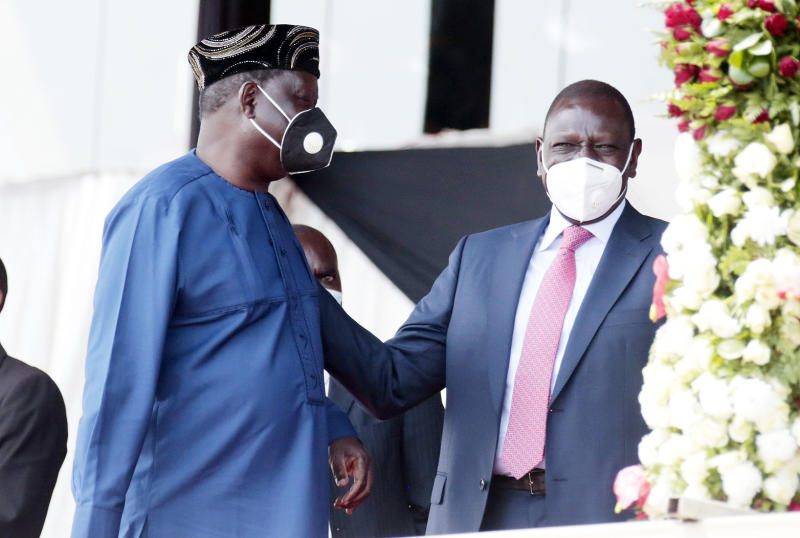×
The Standard e-Paper
Fearless, Trusted News

Former Prime Minister Raila Odinga (left) and Deputy President William Ruto chat during Jamhuri Day celebrations at Nyayo National Stadium, Nairobi on Saturday, December 12, 2020. [Boniface Okendo, Standard]
Ceteris paribus, Latin for “all things held constant,” is used to predict an outcome with the assumption that all variables influencing that outcome remain unchanged. In life, where all things are in a state of flux, the only constants are death and taxes.